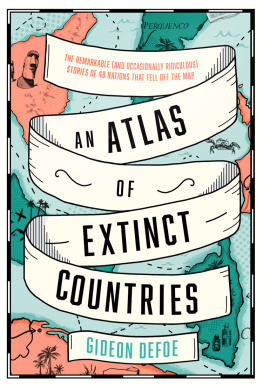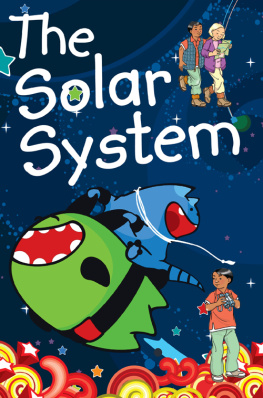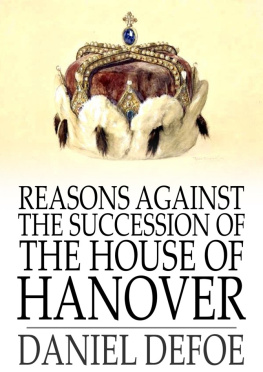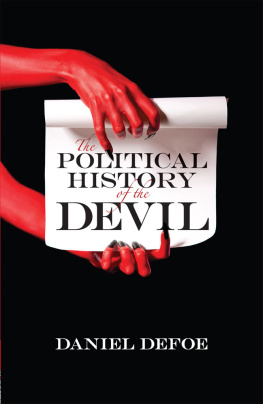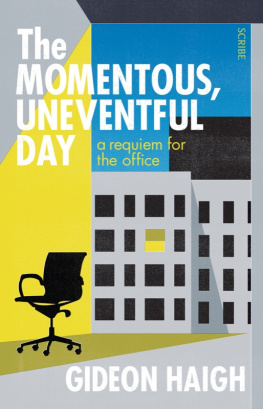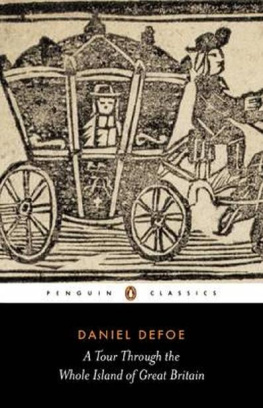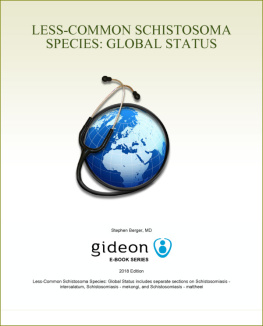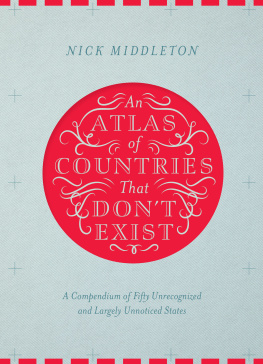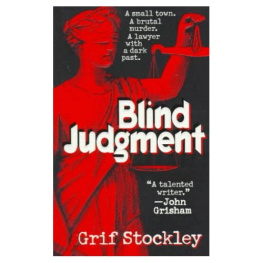Gideon Defoe - An Atlas of Extinct Countries
Here you can read online Gideon Defoe - An Atlas of Extinct Countries full text of the book (entire story) in english for free. Download pdf and epub, get meaning, cover and reviews about this ebook. year: 2020, publisher: HarperCollins Publishers, genre: Detective and thriller. Description of the work, (preface) as well as reviews are available. Best literature library LitArk.com created for fans of good reading and offers a wide selection of genres:
Romance novel
Science fiction
Adventure
Detective
Science
History
Home and family
Prose
Art
Politics
Computer
Non-fiction
Religion
Business
Children
Humor
Choose a favorite category and find really read worthwhile books. Enjoy immersion in the world of imagination, feel the emotions of the characters or learn something new for yourself, make an fascinating discovery.
- Book:An Atlas of Extinct Countries
- Author:
- Publisher:HarperCollins Publishers
- Genre:
- Year:2020
- Rating:4 / 5
- Favourites:Add to favourites
- Your mark:
- 80
- 1
- 2
- 3
- 4
- 5
An Atlas of Extinct Countries: summary, description and annotation
We offer to read an annotation, description, summary or preface (depends on what the author of the book "An Atlas of Extinct Countries" wrote himself). If you haven't found the necessary information about the book — write in the comments, we will try to find it.
An Atlas of Extinct Countries — read online for free the complete book (whole text) full work
Below is the text of the book, divided by pages. System saving the place of the last page read, allows you to conveniently read the book "An Atlas of Extinct Countries" online for free, without having to search again every time where you left off. Put a bookmark, and you can go to the page where you finished reading at any time.
Font size:
Interval:
Bookmark:

For Elise
Generous to a Fault, they Died Doing What they Loved, Exporting Tin
Countries die. Sometimes its murder. Sometimes its an accident. Sometimes its because they were too ludicrous to exist in the first place. Every so often they explode violently. A few slip away unnoticed. Often the cause of death is either got too greedy or Napoleon turned up. Now and then they just hold a referendum and vote themselves out of existence.
These are the obituaries of the nations that fell off the map. The polite way of writing an obituary is: dwell on the good bits, gloss over the embarrassing stuff. A book about dead nations cant really do that, because its impossible to skip the embarrassing stuff theres far too much of it. The life stories of the sadly deceased involve a catalogue of chancers, racists, racist chancers, con men, madmen, people trying to get out of paying taxes, mistakes, lies, stupid schemes and a lot of things that youd file under the umbrella term of general idiocy. Because of this and because treating nation states with too much respect is maybe the entire problem with pretty much everything these accounts do not respectfully add to all the earnest flag-saluting in the world, however nice some of the flags are.
If youre a contestant on Pointless and want a book that sticks to a firm definition of what a country is, you are owed an apology. You could write a very dry essay on all the failed attempts to define what counts as a country, and if very dry essays are your thing then there are already a fair few out there. None of them get particularly close to an answer. There is something in biology called the species problem. The problem being: after years of arguing about it, nobody can agree what criteria actually define a species. Countries are no different. We switch definitions depending on whether were at the United Nations, playing football, singing in Eurovision or buying cheese. Its a mess.
Having said that, here are some arbitrary rules: Ive avoided delving too far into the past, because talking about ancient places as nation states is sort of meaningless when the idea itself didnt exist until the last few hundred years. Ive ignored empires and colonies. Ive left out places where the name has changed but the shape on the map has stayed the same. Ive then immediately forgotten those rules by including Silla, Axum, New Caledonia and the Congo Free State. Please address angry letters about that to Richard Osman or the UN Secretary-General. Or just pretend its in the tradition of Herodotus, which is a fancy way of saying that the story is more important than getting bogged down in endless caveats (caveat: caveats are good, and you should be rightfully suspicious of anything that tries to sum up the history of a place in 500 words).
If ex-nations seem unimportant in the big scheme of things then its worth remembering that, like a Marvel superhero cash cow, countries dont always stay dead. Humans live in a constant state of changing their minds about the type and number of other humans they want to be categorised with, so we oscillate from tiny blobs to huge empires and back again, and theres no reason to assume that process will ever stop. Within a decade, some of these geographical zombies might claw their way out of the graveyard and back into the atlas.
Please send hard currency in lieu of flowers. ALL HAIL NEUTRAL MORESNET.
A note on the locations: These maps use the what3words geocoding system. Instead of latitude and longitude, a set of three randomly assigned words can be used to uniquely identify the location of anything in the world, down to a resolution of three metres squared. One of the benefits of this is that its much easier to remember three words than a string of numbers.
Visit what3words.com for more information.
Another apology: a lot of these places are the stories of Posh White Guys, which is an unavoidable product of a time when only Posh White Guys felt entitled enough to go and set up countries.
18411946
Population: between 8,000 (1841) and 600,000 (1946)
Capital: Kuching
Languages: English, Iban, Melanau, Bidayuh, Sarawak Malay, Chinese
Currency: Sarawak dollar
Cause of death: sold to the British
Today: part of Malaysia
///compound.melons.orchestra
While still a school kid, James Brooke declared his intention to run away to sea. He got as far as his grans garden in Reigate. This combination of a lust for adventure, being slightly overdramatic and messing stuff up would be the main themes running through the rest of his life.

No less determined to see the world by the time he was a teen, he joined the army, where his glorious military career ended as soon as it began. Charging into battle he was immediately shot, possibly in the lung, possibly somewhere significantly worse.
After a painful recuperation, Brooke tried again. He already knew that his fabulously wealthy father was a soft touch, because when his brother had asked for an elephant, Brooke Senior obligingly had one shipped over at huge expense. James didnt want an elephant. He wanted a boat. Daddy obliged.
With his new toy, Brooke sailed for Borneo: the nineteenth-century poster child for savage, lush exoticism. The indigenous population, the Dayak, was divided into complicated rival factions, constantly skirmishing with each other, though mostly in the form of violent dance-offs. Brooke successfully played the competing groups against each other taking the side of the land dayaks, rather than the piratical sea dayaks (a terminology that he invented). Bringing a measure of order to the local chaos, he was awarded a chunk of territory by a grateful Sultan of Brunei, who had wrongly assumed that Brooke, very much a private citizen chancer, somehow represented the British Empire. He was also given a pet orangutan called Betsy.
Aged just 38, he had his own kingdom. I am really becoming a great man, dearest mother, Brooke wrote in a letter home, displaying all the modest self-effacement that rich English Victorian white dudes are generally famous for. But in an era of greedy Brits abroad, Brooke only registers as about a five-out-of-ten on the Imperialistic Git scale. He seems to have genuinely wanted the best for his people, albeit in the patronising paternalistic way of the time. He set up a court of justice to bring law to his new domain, and famously sentenced a man-eating crocodile to death (because, though he respected and sympathised with the animal, he didnt want the other crocodiles to get the wrong idea about what was acceptable behaviour). The local Dayak population were keen headhunters, an activity Brooke tried semi-successfully to discourage and however much of a cultural relativist you are, thats probably not the worst thing in the world.
Font size:
Interval:
Bookmark:
Similar books «An Atlas of Extinct Countries»
Look at similar books to An Atlas of Extinct Countries. We have selected literature similar in name and meaning in the hope of providing readers with more options to find new, interesting, not yet read works.
Discussion, reviews of the book An Atlas of Extinct Countries and just readers' own opinions. Leave your comments, write what you think about the work, its meaning or the main characters. Specify what exactly you liked and what you didn't like, and why you think so.

